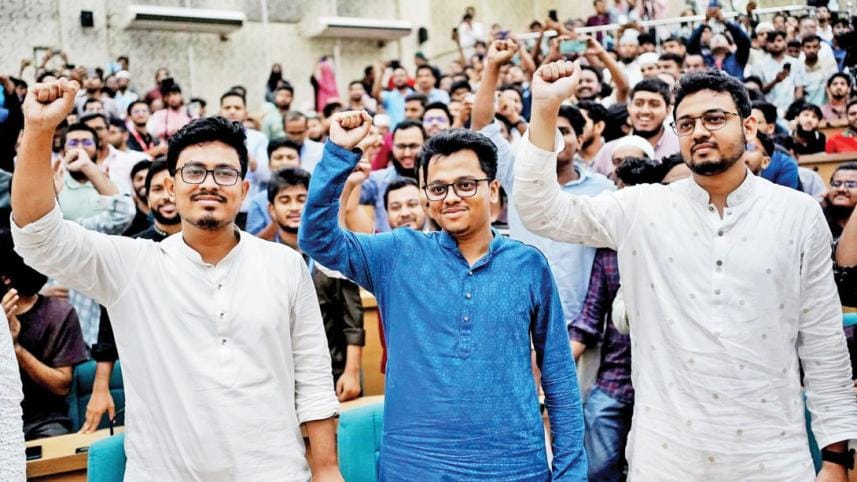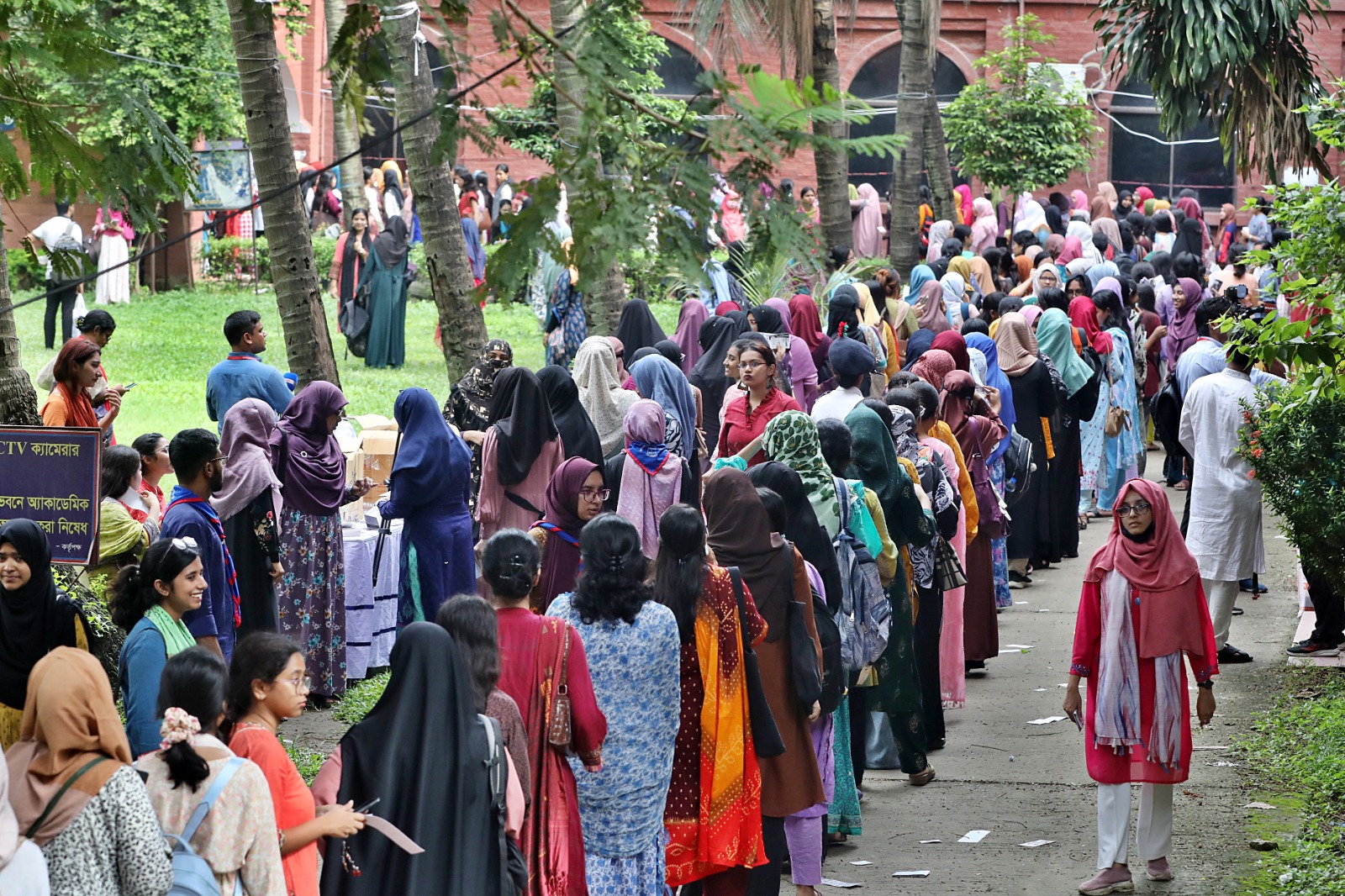After Ducsu polls, Shibir has its work cut out for itself

In the final analysis, the comprehensive victory for Shibir-backed candidates in the Dhaka University Central Students' Union (Ducsu) election was not a surprise. Their margin of victory, however, was sobering for many who had thought that Jamaat-e-Islami's student wing would never win. This result may not be an exact reflection of how the youth might vote in the national election, but it certainly does provide some indication. That is one takeaway. However, the new Ducsu office-bearers will have their work cut out for them. But before delving into that, a few other takeaways.
With the voter turnout hitting close to 80 percent, it does not appear that there was any feeling of disenfranchisement in the absence of Awami League's student wing, the Chhatra League (now a banned outfit). If anything, the results underscored just how irrelevant the outfit has become, having failed to build a loyal following to counter Shibir despite its sometimes-brutal campaign against the latter (the killing of Buet's Abrar Fahad comes to mind).
The National Citizen Party's (NCP) student wing also hardly made a ripple, or dent. In hindsight, they were never a force to reckon with in this election. The currency that the July uprising leaders thought they still carried seems to have fizzled out on the very campus that was the cradle of that movement. Since young voters are presumed to be the NCP's natural support base, the Ducsu result warrants serious scrutiny over whether this debacle also signals waning popularity for the parent party.
BNP's student wing came in for the rudest awakening. Chatra Dal appeared to have been riding on the hope that, no matter what, students of this university would not vote for a platform backed by Shibir, given its controversial past. That only showed how out of touch with the ground reality they were. Clearly, that controversial past did not matter to the general students, many of whom seemed to fear that voting for Chatra Dal would simply recreate another Chhatra League-style atmosphere on campus.
Coming back to Shibir, this was the first time in Bangladesh's history that Jamaat's student wing openly contested an election on the DU campus. Although the panel's name, Oikkoboddho Shikkharthi Jote (or United Student Alliance), suggested a broad union of general students, it was essentially Shibir-backed—a signature strategy it has long used to mask direct links. Whether it was expedience or genuine commitment that drove Shibir to include non-Muslims, members of ethnic minorities, and women in the panel, the stratagem paid off. Shibir announced its arrival in style with commanding leads and, more notably, without pomp. For Jamaat, it must have been very encouraging to see Shibir's groundwork pay off so handsomely, emboldening its hopes for a similar showing in the national polls.
Not only did Shibir refrain from bringing out a victory procession, but their leading duo—the vice-president elect and the general secretary elect—have both been humble and measured in acknowledging the results. One emphasised that the victory was not their panel's alone, but belonged to the students. Another apologised to fellow students for the intrusive conduct of their campaign over the past few weeks. Perhaps the only reason congratulatory messages are not pouring in from all quarters, including their campus rivals, is their tainted legacy.
In fact, Shibir's main rivals, Chatra Dal and its parent party BNP, are desperately inventing conspiracies and schemes to explain the debacle. There have been allegations of irregularities that are hardly convincing. Shibir's years of welfare activities—helping poor students with coaching, accommodation, and even tuition—were neither covert nor secret. They were playing the long game. Instead of the same old brand of "student politics" that revolved around gaining muscle and establishing supremacy, Shibir was able to project themselves as helpful and approachable. They were seen as a party that would work towards the welfare of students, a perception that outweighed Shibir's past.
Students were willing to overlook that cadres of this party's predecessor had once turned against professors of the university and led them to death camps during the dying days of the Liberation War. Jamaat or Shibir's past record did not matter. Nor did it matter that barely a month or so before the election, Shibir had organised an exhibition (which they took down within a day) of "martyrs" in memory of Jamaat leaders convicted of the most heinous war crimes.
But the new Ducsu office-bearers do inherit unresolved questions over the legacy of Shibir's predecessors. Perhaps for the first time in a long while, Ducsu leaders do not enjoy the unquestioned confidence of a large section of the general populace. Detractors will be quick to point out even the smallest misstep. Their victory, therefore, cannot be read as a blanket endorsement of past misdeeds or violence, nor as validation of their historical stance against Bangladesh.
Instead, this win is a mandate for demonstrating competence, responsibility, and genuine commitment to student welfare. The battle may have been won for now, but the real test lies ahead. Shibir must prove that they can translate electoral success into meaningful actions, show fairness in governance, and earn the trust of a student body that remains apprehensive and watchful. Only by delivering on these expectations can they reshape the perception of their role on campus.
Tanim Ahmed is digital editor at The Daily Star.
Views expressed in this article are the author's own.
Follow The Daily Star Opinion on Facebook for the latest opinions, commentaries and analyses by experts and professionals. To contribute your article or letter to The Daily Star Opinion, see our guidelines for submission.




 For all latest news, follow The Daily Star's Google News channel.
For all latest news, follow The Daily Star's Google News channel. 

Comments